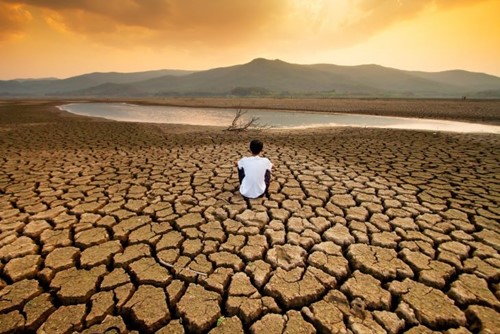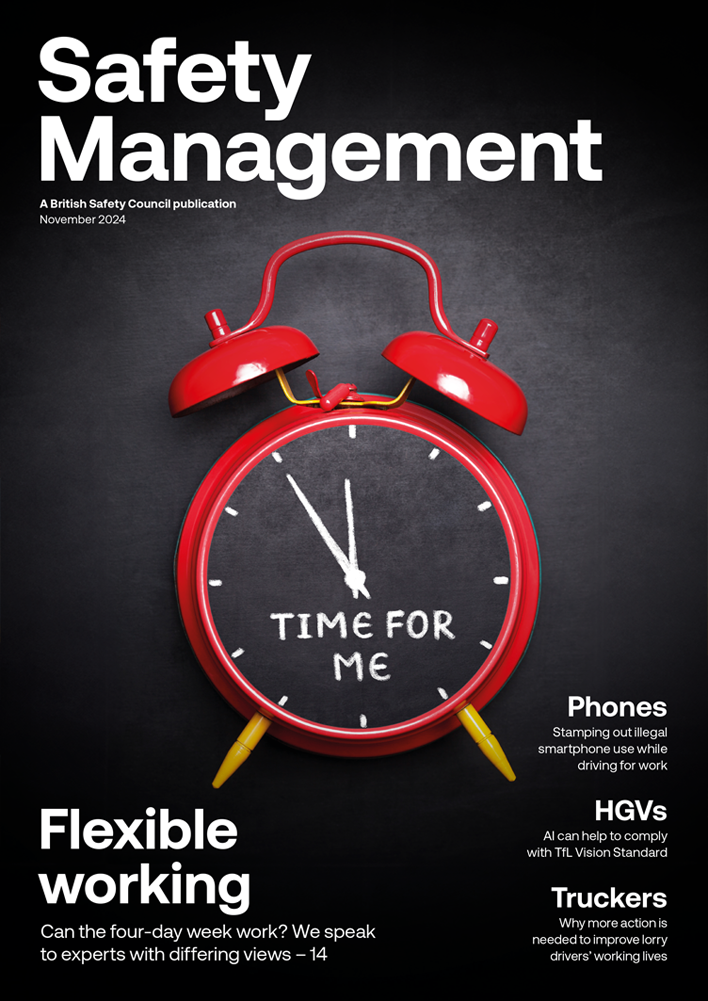If more businesses publicly reported on the steps they are taking to adapt to the effects of climate change, the UK as a whole could become more resilient to the impact of global warming.
Features
Time to report on climate change
As tactics go, talking our way to keeping global heating within 1.5oC of pre-industrial levels isn’t one we should be betting our (overheating, increasingly flood-prone) houses on. Yet that’s what we’re effectively doing in the run-up to COP26, Climate Change Committee (CCC) chief executive Chris Stark told an audience convened by CIWEM earlier this year to discuss how well adaptation reporting is working.
 The reality of 4oC hotter means a lot more heatwaves, droughts, floods, storms and sea level rise. Photograph: iStock
The reality of 4oC hotter means a lot more heatwaves, droughts, floods, storms and sea level rise. Photograph: iStock
With improved nationally determined contribution and net zero targets yet to be backed up by similarly ambitious policies, and foot-dragging in other parts of the world, we’re in real danger of masking the reality that we’re actually on track for 4oC hotter, not 1.5oC.
“We need to get real,” said Stark, presenting the reality befitting his name.
Without truly ambitious and rapid climate policy implementation both nationally and globally, 1.5oC or even 2oC are pipe dreams. And we need to be planning our towns, cities, infrastructure and business investments on that uncomfortable basis, while we have time.
As Met Office chief scientist Professor Stephen Belcher set out, the reality of 4oC hotter means a lot more heatwaves, droughts, floods, storms and sea level rise than we in the UK have to contend with at the moment.
That’s crucial because the lifespan of housing, infrastructure and business capital assets will all commonly exceed the time horizon over which that heating will occur. It will also have impacts on supply chains or other operational considerations for business of all kinds. So planning and investment decisions taken now, which don’t consider and factor in the stark climate probability, are likely to be bad ones.
 Reporting gives government a clear picture of our collective exposure to climate risk. Photograph: iStock
Reporting gives government a clear picture of our collective exposure to climate risk. Photograph: iStock
And the world is heating up now and will continue to do so, whatever we do over the next few decades. Historic greenhouse gas emissions and the way in which the atmosphere delays our experiencing the impacts of those emissions mean we need to strap in for the ride.
How uncomfortable that ride is, of course, is still in our gift to determine but prospects don’t look too hopeful. Suffice to say there’s a lot of big chat going down in the car at the moment, but the standard of driving leaves plenty to be desired and the motor’s an old banger.
Climate Change Act
Many people are familiar with the Climate Change Act, passed in 2008 and marking the UK out as a leader in climate change governance on the global stage. It is known for its ‘carbon budgets’ approach to setting legally binding targets for decarbonisation, tweaked in 2019 to factor in achieving net zero by 2050.
Its lesser-known components relate to how we deal with the climate change that’s coming down the tracks – to some degree or other – whatever we do. The principle is, businesses and organisations – infrastructure operators and the like – across the economy and society report to government on how they’re planning to adapt to climate change.
This gives government a clear picture of our collective exposure to climate risk and how well prepared we are to manage it, and it can then set appropriate, informed policies and drivers to ensure adaptation is smooth and controlled, not reactive and preceded by a series of shocks.
Adaptation reporting engagement
The problem is, engagement with this process hasn’t been as enthusiastic as it arguably should have been. The Climate Change Act gives the Secretary of State powers to direct organisations to report – to make it mandatory. But so far government has chosen a voluntary approach.
This has meant that organisations with a clear climate change remit, or which are particularly acutely exposed to climate risks – water companies or ports operators for example – have tended to report. Other sectors which have a significant influence on preparedness for climate change – such as local government or the housing sector – are conspicuous by their absence.
Defra – which leads on adaptation – has been more energetic in the current reporting round in terms of drumming up and supporting more active engagement. But arguably the voluntary approach isn’t generating the urgency and recognition of the seriousness of the risk that’s necessary.
Government should look again at whether a mandatory approach is now needed, with COP26 looming and aiming to put greater emphasis on the importance of adaptation.
Those organisations which have engaged with adaptation reporting – particularly over more than one reporting round – have found the experience beneficial. This is in terms of a gradual appreciation across their senior management and operational levels of what climate change means to the organisation, its importance and how resilience can be built to an advantage.
It’s a beneficial journey which can be enhanced by in-sector and cross-sector knowledge sharing to develop good practice. The more organisations on that journey, the more opportunity to share understanding and the easier it becomes to adapt and build resilience.
Other things need a look at, not least the sequencing of the adaptation reporting rounds.
There is a cycle in which every five years the CCC assesses the evidence around the UK’s climate risk and publishes it. Government then prepares the Climate Change Risk Assessment (CCRA) based on this evidence. It will then prepare the National Adaptation Programme which, in theory at least, sets out the government’s programme for addressing the CCRA (that’s a subject for another article though).
Currently, adaptation reports have to be submitted around six months after the evidence gathering round for the CCRA concludes. It could be much more beneficially ordered so that organisation reports feed into this evidence gathering, rather than landing afterwards so that the evidence put to government by the CCC is as current as possible.
In getting real on climate change there is much that we need to do. As an island nation in the firing line of an increasingly energetic Atlantic and jet stream, and reliant on global supply chains, upping our game on adaptation and resilience – and reporting on progress – is just one of those many things.
Our report, Climate change adaptation reporting in the UK: Mainstreaming best practice and harnessing the benefits, digs into this in more detail and shares the experience of some seasoned reporting organisations as well as some new ones. It’s based on a webinar that is also available free online.
Alastair Chisholm is Director of Policy at CIWEM (Chartered Institution of Water and Environmental Management)
For the report see: bit.ly/3uLGQBf
For the webinar, see: bit.ly/3hjlmrw
FEATURES

Winter pressures mean good mental health support is crucial
By Kevin Bampton, British Occupational Hygiene Society on 01 December 2021
I will tell anyone who cares to listen that winter 2020/2021 was a historic moment in British social and economic history. British business became, for the first time ever, my public health hero.

The big sleep
By Marcus Herbert, British Safety Council on 01 December 2021
Poor quality sleep can affect both our physical and psychological wellbeing, but simple lifestyle changes can make a big difference.

Why changes to recycling legislation in England are an opportunity, not a burden
By Adriana Olaya Rodriguez, Newell Brands on 12 November 2024
From March 2025, many businesses in England will have to begin separating their recyclable and food waste from general waste prior to collection, but the changes will bring wider business benefits, such as reduced waste disposal costs and improved sustainability credentials.



